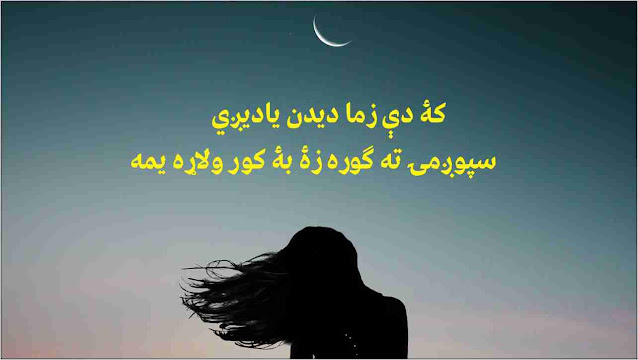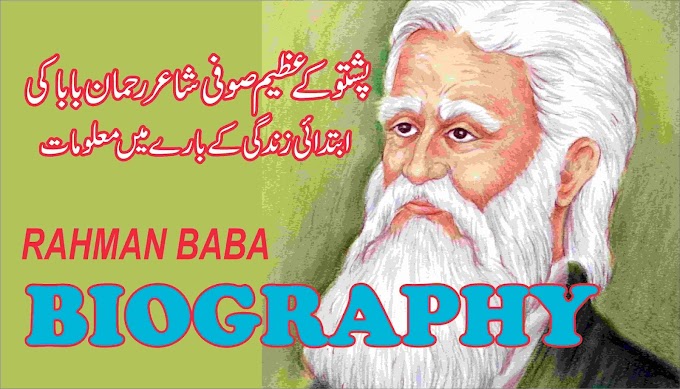Research, in particular, modern research is a positive scientific approach that seeks evidence before making any kind of claim on a variety of issues and emphasizes sound reasoning and evidence.
 |
| Pashto Tappa |
Our 21st century minds, especially those familiar with universities and colleges, are so familiar with and inspired by this method of research that they are unaware of any scientific or literary claim, considering its historical evidence and testimony.
This is a positive attitude but in addition to this attitude we also face some negative consequences in some places which we do not feel comfortable with.
In this regard, I would like to draw attention to the two negative conclusions of our research. Rather than denying the object as an objective fact, we also need to consider whether the lack of relevant evidence may be the result of the inadequacy of our investigation or, for example, the fact that certain facts have been lost from our basic historical record. We see that before the introduction of the Arabic alphabet in Pashto language, no document of Pashto writing has survived but the language has survived, so the accidental loss of evidence and testimony from the historical record also comes to us. Assuming this does not mean that the objective existence of the Guinean claim did not exist in history. On the contrary, I find myself authorized to say that in such a tumultuous historical situation, our historical and investigative reasoning, if nothing else, can at least do so much without touching the mouth of our conscience. Scholars who are unaware of the nature of science will refute my psychological claim that sometimes our mental faculties get tired and fail in the search for a truth and seemingly become indifferent to the search for it. The researcher has an automatic set of consciences in mind.
The necessity of the above preparation seemed to me in a
particular context in that in recent times the modern mindset of our modern
research raises questions of a negative and negative nature on the antiquity of
the Pashto wound and claims that the classical period of Pashto. We don't know
what kind of document of Pashto TAPPA before because comparing the antiquity of
Pashto TAPPA with thousands of years is an absurd claim.
If it is a matter of opening Malakand in a short time, then
under this research rule of modern researchers, another claim is justified that
in terms of historical documents, but this language "Pashto" also
does not have any unanimous historical document before Akbar Zamindawar. And
since there are some differences of opinion, we have to deny the history and
antiquity of the Pashto language. It can be said that languages do not go
through thousands of years of historical and cultural process for their own
stability because not even a single name of a language can be formed after six
or seven hundred years and our intellect can agree with this guidance of
conscience. Then we also need to fill in the gaps in the antecedents of the
TAPPA with the advice of conscience.
Doesn't our conscience tell us about the antiquity of the
TAPPA? Since Pashto is folklore and folklore moves in the heart of a language
according to a language, the more ancient a language is in it, the older its
folklore will be. We have to apply this in every language of the world but it
is also important to note that the culture of one language and one nation plays
a fundamental role in the historical interaction of language and folklore.
Denial also results and it will be our most blatant cruelty to our nation and
culture.
One of the claims made by our new researchers is that
"there is not a single tappa that does not contain any evidence of the old
subject / content or the use of old language for its own preservation." Or
have testimony. "
This issue seems to me to be more critical than investigative, and we fall prey to a serious misconception in the context of our claim that even the most conservative of the tappa runs to the subject of tappa. The discussion of the content and use of language in the context of the antiquity of the tappa does not help us as much as the gender tradition of this genre gives a strong indication of its antiquity. If we consider the genre tradition of ghazal, we know that this genre came to Pashto from Arabic through Persian. The question is why we do not have the source of the gender tradition of tappa? Here our conscience once again recommends to us that the source of this gender tradition of tappa is its own Pashto language and Pashtun culture as this language and culture in itself indicates thousands of years old but not proven by history and research. Yes, such a Pashto tappa is also not proven by history and research, but its argument in its interpretation with language and culture proves itself.
Moreover, it is evident from the ancient human traditions,
especially from the poetic and gender traditions, that with the earliest
specimens of poetry, the name of the poet would not have been written, but all
the old genres would have been written anonymously under a common ritual. So
Pashto Tapa refers to this ancient and pre-historic ritual more clearly than
anything else, the exact type of Pashto Tapa poet is still unknown. And this
situation leads us to the communal epochs of history in its continuity, on the
basis of which I say that Pashto Tapa in its classical tradition shows its
interest in the old historical epochs of communism, so how can it be so short
Can it be reduced to a hundred years?
May the Lord grant
us, to a lesser degree, the degree of conscience to the hard-line rationalist
scholars, lest he should take down the skin of his head on his own?










0 Comments
Please do not enter any spam link in the comment box
Emoji